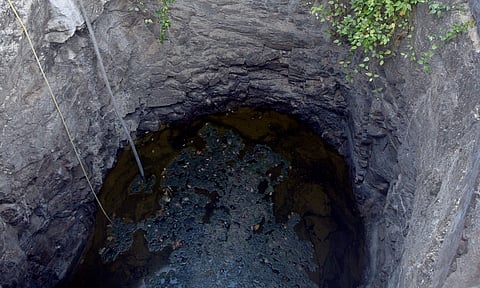

BENGALURU: As scorching summer continues to wear down citizens, their woes have been compounded further by the Reverse Osmosis (RO) plants facing water scarcity. Out of the 503 RO plants run by Bruhat Bengaluru Mahanagara Palike (BBMP), several of them, clustered in areas in the northern and eastern parts of the city, are currently facing reduced or negligible water supply, and are having to rely on private tankers for water supply.
Each plant is handed over to a private operator by BBMP through a tender process. In areas where most borewells have dried up, the private operators are having to buy water from private tankers for a higher rate. Privately-run RO plants are also facing the same issues. “Most of the borewells have gone dry and we buy from tankers at Rs 1,000 or more for 5,000 litres,” said Rajesh, an employee at Pentapure RO System India, Hebbal.
Of the 503 RO plants run by BBMP, at least 24 have been lying defunct and have been under repairs for about six months. Twenty of these will be repaired in the following days to cater to the needs of the people, said Madhu Kumar, Executive Engineer, BBMP. “Also, places for installing new RO plants will be identified by zonal engineers and the work will be completed in three months. New plants will be installed in all the zones depending on the necessity,” he added.
The main areas that are suffering from water crisis are DG Halli, Kavalbysandra, Muneshwara Nagara, Pulkeshi Nagar, Shivaji Nagar, Hebbal, Shantinagar, Vinayaka Nagar, Kodigehalli, Thanisandra, and Dinnur. In a bid to tackle the situation, the civic agency had allotted Rs 20 lakh to each ward in 129 core areas and Rs 40 lakh for the other 69 wards in its budget this year. An additional amount of Rs 15 lakh per ward was also allotted for the installation of RO plants.
At places where the borewells and RO plants have dried up, BBMP has also opened tenders for private tankers to supply water. Each tanker will be coated with Ethoxylated Polyethyiemine (EPI) to prevent hazardous chemical reactions between the metal of the vehicle and the salts dissolved in water.
Also, the 110 villages recently identified by Bangalore Water Supply and Sewerage Board (BWSSB) for water supply through pipelines continue to face water shortage. In a recent meeting with BBMP officials, BWSSB said it will help the civic agency with free water supply if they arrange water tankers and take care of the distribution in the villages.